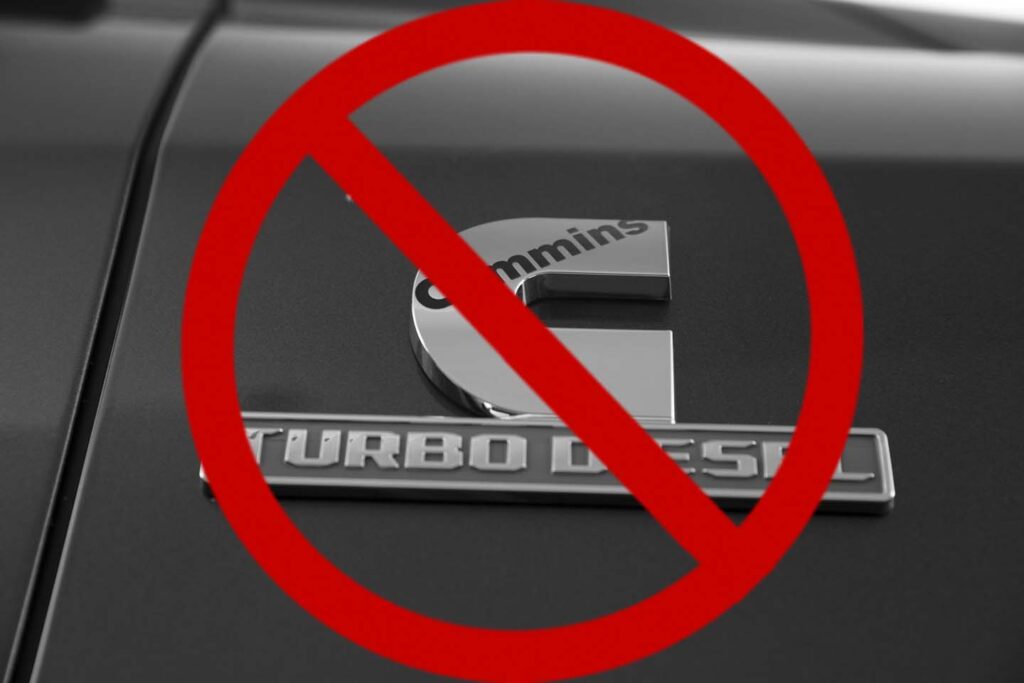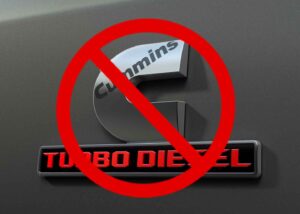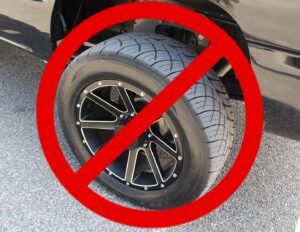Emissions Minute: 2027 Standards May Regulate Diesel Out Of Existence
Will the new, multi-pollutant emissions standards effectively ban future diesel and gasoline vehicles?

On March 20, the Environmental Protection Agency finalized its emissions standards for 2027-later model year light and medium-duty vehicles. By 2032, the regulations require all cars and trucks sold in the U.S. to meet a fleetwide tailpipe emissions average of 85 grams of CO2 per mile. At present, only electric vehicles and just five plug-in hybrids are capable of meeting that standard. According to the American Fuel & Petrochemical Manufacturers (AFPM), the new emission standards are intentionally designed to force electric vehicle adoption. “This rule will hurt working-class Americans, small businesses, and farmers by effectively banning the sale of gasoline-powered vehicles in America,” Diana Furchtgott-Roth, Director of Center for Energy, Climate, and Environment at The Heritage Foundation, said in a statement. She went on to say that the new regulations will have “practically no effect on global temperatures.”
There is no shortage of influential names in opposition to these new emission standards, and they wasted little time weighing in on the EPA’s final rule:
“It is disappointing that the Biden Administration continues to be actively working against its stated goal of ‘equipping the American middle class to succeed. While electric vehicles clearly have a role in our vehicle mix, the middle class cannot succeed with the EPA forcing an unworkable, expensive EV quota on working class families. State mandates have not led to widespread public adoption of EVs—sales are actually on the decline. The lack of electric grid and charging infrastructures, long recharge times, high EV costs and governmental failure to ensure U.S. critical mineral supplies are all challenges that won’t be solved anytime soon. These policies harm our middle class and place America’s energy security in the hands of totalitarian regimes that control the vast majority of critical minerals mining, processing, and refining, while leaving working families holding the bill.”
—David Holt, President – Consumer Energy Alliance
“SEMA has long advocated that government mandates, including those designed to support the sale of EVs and eliminate the sale of internal combustion engine (ICE) vehicles, are the wrong approach to reducing motor vehicle emissions. The federal government and states should take an ‘all of the above’ approach to vehicle technology and incentivize innovation and allow the market to determine the best ways to reach improved emissions goals.”
—Mike Spagnola, President and CEO – SEMA
“This rule will hurt working-class Americans, small businesses, and farmers by effectively banning the sale of gasoline-powered vehicles in America—while having practically no effect on global temperatures. Despite subsidies and tax credits, electric vehicles are only 7-percent of new car sales, primarily bought by higher earners as an amenity. EVs are unsuitable for most Americans because they are more expensive, take two hours to recharge, and they lose power and range when it’s cold, as many saw last winter. It is not social justice for the Biden administration to take away affordable transportation that gets people to work, to school, and on vacation with their families—it’s irresponsible.”
—Diana Furchtgott-Roth, Director, Center for Energy, Climate, and Environment – The Heritage Foundation; Former Chief Economist – US Department of Labor
“The EPA’s rule…will be devastating to countless Americans in many ways including the following: it will take the choice out of the public’s hands regarding the purchase of vehicles; it will pose a major threat to our power grids; refineries who refine the fuels that power gas powered cars will close and the jobs they offer will go with them; and China currently dominates the supply chain for electric vehicles thus causing a devastating decimation of good paying union jobs to American workers. For these reasons and more, I am opposed to the EPA’s upcoming proposed Clean Car Rule.”
—Joe Dougherty, Executive Director – Labor & Energy Alliance
“We are disappointed that the EPA has adopted a rule that effectively is an EV mandate that is both unaffordable for most consumers and will lead to a disruption of the auto marketplace. We need more policies that promote flexibility in our vehicle choices and that provide more time to reduce carbon from our transportation sector. We do not need mandates with artificial deadlines to purchase cars many people don’t want to buy.”
—Ray Cantor, Deputy Chief Government Affairs Officer – NJBIA
“The Biden administration’s de facto electric vehicle mandates will erode the reliability of the American electric grid by increasing demand for electricity at a time when its Environmental Protection Agency regulations on power plants would reduce its supply. American Experiment’s modeling of the carbon dioxide regulations on power plants found that these rules would result in massive blackouts in the middle of the country. The tailpipe regulations will only make matters worse.”
—Isaac Orr, Policy Fellow, Energy and Environmental Policy – Center of the American Experiment
“Using unreasonable regulations to force gas-powered vehicles out of the market hurts hardworking families that are already struggling to afford groceries and utilities because of Biden’s policies. This rule will make cars and everyday travel even more expensive for those families while increasing our dependence on our number one adversary: China. Americans have had enough. More than 246,000 people fought back during the public comment period—including thousands of Heritage Action’s grassroots partners—and told the government that Biden’s out-of-touch energy policies are making life more difficult and less affordable. He should listen to the people and abandon this rule.”
—Ryan Walker, Executive Director – Heritage Action



